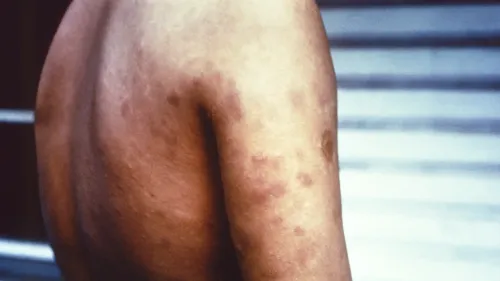Can Vaccination Against Whooping Cough in Pregnancy Enhance Antibody Levels and Safeguard Babies?

Synopsis
Key Takeaways
- Vaccination during pregnancy can enhance antibody levels in infants.
- Whooping cough is a serious respiratory infection that poses risks to infants.
- Two types of vaccines are used for pertussis: whole-cell and acellular.
- Maternal vaccination is recommended to protect vulnerable infants.
- Research indicates potential antibody response blunting following vaccination.
New Delhi, May 5 (NationPress) A recent study indicates that vaccinating expectant mothers against whooping cough can significantly enhance both the quantity and quality of antibodies present in infants during their early life.
Whooping cough, or pertussis, is a highly infectious respiratory illness marked by intense coughing spells, often culminating in a high-pitched 'whoop' during inhalation. This condition is caused by the bacterium Bordetella pertussis.
Despite widespread vaccination efforts, whooping cough has experienced a resurgence. The World Health Organization (WHO) estimates around 16 million cases occur each year, leading to approximately 195,000 fatalities among children globally.
Researchers from the University of Turku in Finland undertook a randomized, controlled, double-blind, phase 4 trial in Gambia to assess the impacts of pertussis vaccination during pregnancy.
Globally, two primary types of pertussis vaccines are utilized: whole-cell vaccines (wPVs) derived from killed whole bacteria and acellular vaccines (aPVs) that consist of one to five purified bacterial antigens.
The results, published in The Lancet Infectious Diseases, revealed that administering diphtheria-tetanus-acellular pertussis vaccines to pregnant women was both safe and well-tolerated, effectively increasing the quantity and quality of pertussis-specific antibodies in infants during their early life.
Given that the highest incidence and mortality rates of pertussis occur in infants, particularly those too young to receive vaccinations, immunization during pregnancy (IP) is recommended to shield infants against pertussis in their early life.
However, research has shown that IP may diminish infants' antibody responses to their initial diphtheria-tetanus-acellular pertussis (DTaP) vaccinations. This reduction is known as 'blunting.'
'Blunting' of vaccine responses has been noted in IgG-antibody concentrations related to various pertussis vaccine antigens, particularly pertussis toxin, filamentous hemagglutinin, pertactin, and diphtheria toxin.
“This study aimed to assess the impact of IP on the immunogenicity of primary acellular or whole-cell pertussis vaccines in a West African cohort,” stated the researchers led by Qiushui He, a professor at the university, who confirmed the vaccine's efficacy.
“While Tdap-IPV (Tetanus, diphtheria, acellular pertussis, polio vaccine) was linked with a relative reduction in the immune response to the DTwP (Diphtheria-Tetanus-whole-cell pertussis) primary vaccination series, the quality of pertussis-specific antibodies and memory B-cell responses remained intact,” the research team concluded.









